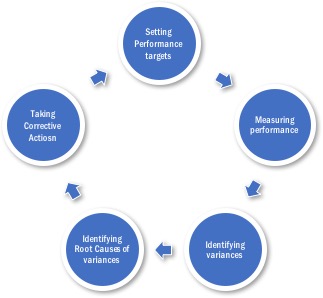I know what you are thinking, that title reminds you of Steven Covey’s Book “The 7 Habits of Highly Effective People,” and yes, that is the inspiration for my thoughts on successful managers. As management consultants, we frequently come across organizations that are good, some that are very good, but few that are really great at what they do. Many organizations over the years have invested heavily into the latest IT infrastructure, developed elaborate management systems and improved their processes. But what really determines the performance of an organization is its People Transformation: the people, their behaviour, skills, and experience. In one word, their habits.

At Proudfoot, we have developed the Seven Habits of Highly Effective Managers in our People Transformation programs and over the years have trained more than ten thousand supervisors, team leaders, and managers in the Seven Habits.
The 7 habits training that make managers highly effective
1. Delegation
Highly effective managers are good at delegating. In particular giving a clear task assignment. When they task somebody to do something, they specify what should be done. Have you ever walked out of a meeting thinking what it is you have been tasked to do and then had to ask for further clarification? Highly effective managers provide context, explain the purpose of the task, and set SMART (Specific, Measurable, Achievable, Relevant and Time bound) expectations, leaving no room for ambiguity.
2. Guidance and Direction
In most cases explaining “the what” isn’t enough. Many tasks must be done in specific ways. Sometimes to comply with the law or regulations. Sometimes to ensure that the tasks are done in the most efficient and timely manner in order to satisfy the customer. Highly effective managers explain “the how.” They give guidance and direction. And they do it face to face, using visuals and examples to explain the details.
3. Follow Up
Having assigned a task and given guidance and direction on how and when the tasks should be completed, highly effective managers follow up on the task. This habit is often misunderstood, and many people get it wrong. They don’t appreciate the difference between following up on somebody and following up on progress of the task. Highly effective managers understand that things can go wrong and that they must monitor progress from time to time. The sooner they spot any issues, the sooner they can take corrective actions and get back on track. In Operational Excellence, the concept of “Variance Management” derives from this habit and is the basis for an effective Continuous Improvement Cycle.
4. Provide Feedback
One would think that the fourth habit of highly effective managers comes naturally, but our internal surveys confirm that most employees don’t feel they get enough feedback. Especially not enough positive feedback and encouragement. Highly effective managers use the follow up habit as an opportunity to provide feedback. Feedback should be related to the task and behaviour, not the individual. In our training courses, we train and coach supervisors and managers in a variety of feedback techniques. However, as a starting point, a quick search on the internet will yield some of the most widely used concepts as a good starting point.
5. Coaching & Supporting
Habit number five is all about developing your people’s talent. Most learning and development is done on the job. Highly effective managers realise that coaching and development is part of their role and responsibilities. They use any follow up situation to provide feedback, coach, and support their people to get better at what they do. Not only does this have a highly motivating effect, it is one of the most effective ways to improve performance, quality, and staff morale. Highly effective managers know it is about their team, and not themselves!
6. Being Proactive
Highly effective managers are proactive and try to anticipate and prevent issues before they occur. They also understand that some problems cannot be solved alone and may need to be escalated. They know how to frame and solve problems so that sound decisions can be made. They also understand that the flipside of every issue is an opportunity for improvement.
7. Measuring
Renowned business process engineer, H. James Harrington once said, “Measurement is the first step that leads to control and eventually to improvement. If you can’t measure something, you can’t understand it. If you can’t understand it, you can’t control it. If you can’t control it, you can’t improve it.” Highly effective managers live by this mantra. They measure, track, and report key performance indicators to be able to improve.
At Proudfoot, we specialize in operational and People Transformation programs. We know how to partner with organizations to solve strategically important problems that impede top-line growth or bottom-line results. The Seven Habits of Highly Effective Managers are just one example of what organizations need to embrace to improve their performance. Find out about what else our People Transformation programs can effectively enhance your business by contacting us at info@proudfoot.com.
If you are interested in learning more about the Seven Habits of Highly Effective Mangers, please get in touch.
…and what about the eighth habit? Steven Covey came up with an eighth habit, which he described as “Find your voice and inspire others to find theirs.”


